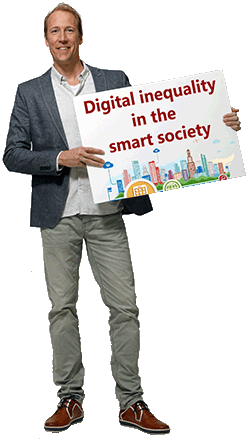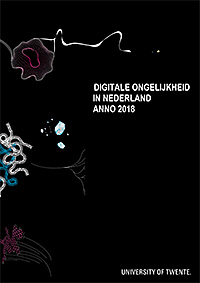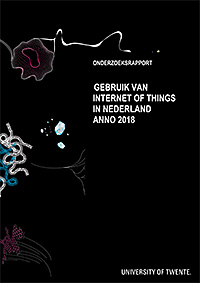Reference:
Van Deursen, A.J.A.M., van der Zeeuw, A., de Boer, P., Jansen, G. & van Rompay, T. (2019). Digital inequalities in the Internet of Things: differences in attitudes, material access, skills, and usage. Information, Communication & Society. In press: https://www.tandfonline.com/doi/full/10.1080/1369118X.2019.1646777
Abstract:
The Internet of Things (IoT) is more complex and abstract than previous information and communication technologies as there are many connections occurring. New challenges for users arise from increased amount of data, decisions made automatically, less visibility and more ambiguity, and magnified security and privacy risks. There is a fair chance that only a selective group will benefit, making it important to study IoT from a digital inequality perspective. The current study focused on health, home, and security related IoT by conducting a survey among a representative sample of the Dutch population. The study was guided by resources and appropriation theory. IoT attitudes and material access as well as educational and income differences play an important role. Those with higher education and those with higher incomes have more positive attitudes and are the first to actually buy IoT. This also means that they are the first to develop the required skills and to engage in a diverse IoT use. The results suggest that to make the IoT attractive for larger parts of the population, clear terms of use and user-friendly IoT should be an important objective. Stimulating positive attitudes towards IoT will increase the likelihood of IoT ownership, development of IoT skills, and, eventually, a wider diversity of IoT use. Policies should aim to stress the potential outcomes IoT has to offer and should promote transparency and disclosure of how personal data is used as well as better privacy, security practices and regulation.
Read article






